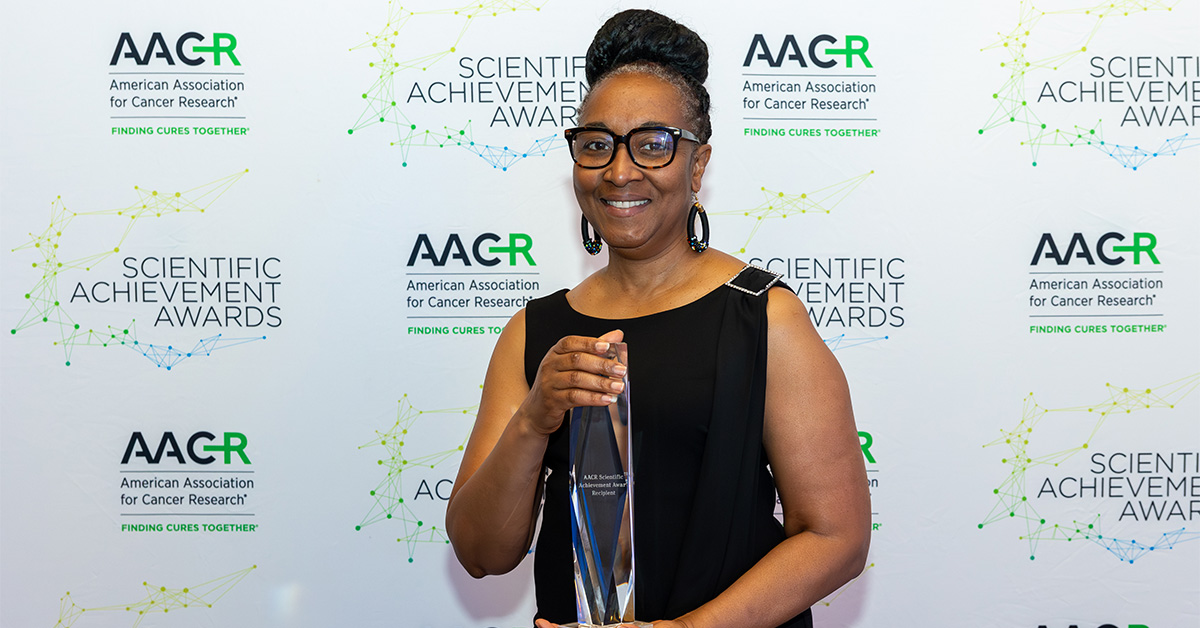
PHILADELPHIA (April 10, 2024) — Camille Ragin, PhD, MPH, Associate Director for Diversity, Equity, and Inclusion at Fox Chase Cancer Center, received the American Association for Cancer Research’s (AACR) Minorities in Cancer Research Jane Cooke Wright Lectureship. She delivered the lecture at the AACR Annual Meeting 2024 being held in San Diego.
“I am extremely humbled to receive this award. I consider myself blessed to have had mentors who took the time to help me shape my career,” said Ragin. “Being honored with this award is truly special, and I am thrilled to be among its distinguished recipients.”
According to the AACR, Ragin is being recognized for “unprecedented contributions to defining and understanding the genetic, molecular, and environmental factors that contribute to cancer onset and progression in underrepresented patient populations.”
Ragin has also played a major role in consistently providing mentorship to minority researchers. “Paying it forward through team building, mentoring, and capacity building are critical components that I feel will help us to effectively address cancer inequities. I have no doubt that one day we will all get there together.”
Ragin is a Professor in the Cancer Prevention and Control Program Research Program at Fox Chase, which focuses on the integration of basic and applied research in molecular biology, oncology, and the behavioral, social, and population sciences to reduce the burden of cancer.
Her lab researches the molecular epidemiology of cancer in the African diaspora. Ragin has developed multiple projects in this area, such as the African Caribbean Cancer Consortium, a multi-collaborative network that studies cancer risk and outcomes among populations of African ancestry.
She also founded the Cancer Prevention Project of Philadelphia, a research registry of cancer-free participants who help inform population-based molecular epidemiology research studies.
The lectureship is named in honor of Jane Cooke Wright, a pioneer physician in clinical cancer chemotherapy and an AACR member for 59 years. Wright became the highest-ranking black woman at a nationally recognized medical institution in 1967. At the time, there were only a few hundred black, female physicians in the United States.
The lectureship was created in 2006 and is presented each year at the AACR annual meeting to recognize an outstanding scientist who has made significant contributions to the field of cancer research. It additionally recognizes a scientist who has furthered the advancement of minority investigators in cancer research.
Honorees for this lectureship are chosen through nominations by individuals who are currently, or who have previously been affiliated with, an institution that conducts cancer research or related science. The nominees are then considered by an award selection committee composed of an international cohort of cancer research experts appointed by the president of the AACR.